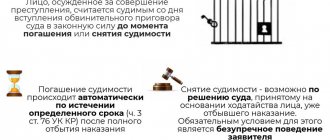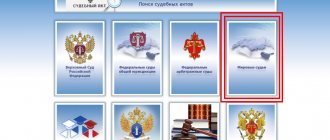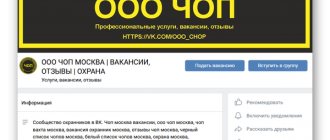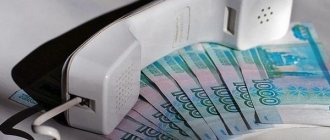Home page » Our projects » Stop, scammer! "Without money, but with debts from other people's loans. How do scammers apply for loans using someone else’s passport and how can you promptly find out about loans in your name that you did not take out?
Stop, scammer!
Author Ekaterina Novitskaya Reading time 8 min Published 09.20.2021
Christina indicated her passport information in the online store, and after a while she learned about her debts on loans that she had not taken out. And such situations are occurring more and more often. Today, obtaining a loan in someone else's name is one of the most common criminal schemes in the lending industry.
Let's try to figure out how scammers get loans using someone else's passport in order to protect ourselves in advance from falling into their trap.
- What schemes do scammers use to obtain loans?
- How will passport holders find out about loans issued in their name?
- How to find out if someone else's loan was taken out in your name
- How to request your credit history?
- Is there any way to protect yourself from scammers?
- What to do if a loan was issued in your name
Can scammers really take out a loan in someone else's name?
Yes, and such situations are not uncommon. Money using someone else’s documents is most often taken not from a bank, where borrowers are thoroughly checked before issuing a loan, but from a microfinance company. MFOs are ready to issue loans without checks, including their risks in the increased interest rate.
The procedure for applying for a loan at an MFO does not involve a detailed procedure for identifying clients:
- the application is submitted online;
- an SMS password is used to sign the contract, no need to go to the office;
- They don’t ask for original documents: it’s enough to write down your passport details or attach a scan (which is not a problem for scammers to make today).
Fraudsters take advantage of this simplified procedure for receiving money from microfinance organizations. To sign microloan agreements, attackers use gray SIM cards that are not tied to a specific person, which makes them difficult to find. They may also try to fraudulently obtain a PIN code for signing a microcredit agreement from SMS.
Where do scammers get other people's passport information to get a loan?
Anyone can become a victim of lending scams. Moreover, the better his credit history and the higher his income, the easier it is for criminals to obtain a loan in their name.
At risk are active Internet users who provide their passport information on online platforms, as well as Russians who have recently lost their passport or bank card (and have not blocked it).
But most often, scammers buy information from unscrupulous employees of companies that work with passport data: these are banks, communication shops, microfinance organizations, etc. Someone else’s passport details get to the criminals from hacked government and private databases.
Also, passport holders themselves often treat their personal data irresponsibly and:
- indicate passport and bank card details on an unverified website;
- provide a copy of the passport in situations where it is not required;
- leave the passport unattended and send scans electronically.
What schemes do scammers use to obtain loans?
Online loans have one drawback for scammers - microfinance organizations give borrowers a small amount - no more than 15-30 thousand rubles, and upon the first application the client can be approved for no more than 5-10 thousand rubles. But restrictions on the loan amount in microfinance organizations do not always save Russians from large debts, since scammers have learned to bypass them.
Scheme No. 1. The client develops a good credit history with the microfinance organization in order to increase possible profits.
The point of this scheme is that attackers take out microloans for a small amount in a person’s name several times and return them in a timely manner. As a result, microfinance organizations increase the available limit for a “bona fide client,” and scammers, having received their last large loan, simply disappear.
Scheme No. 2. Apply for loans simultaneously from several microfinance companies.
Fraudsters send loan requests to different microfinance organizations on the same day, so that information about submitted applications and overdue payments does not have time to reach the credit history bureau. As a result, they issue several microloans for small amounts per person.
What's the payback?
If fraud does occur, the task of the economic security service is to determine whether the person really did not take the money and became a victim of criminals or is trying to refuse to pay the debt in this way. It is established who and when issued the loan, who made the decision to issue it, and what data of the borrower may not correspond to reality.
The person in whose name the scammers issued the loan bears reputational risks (damaged credit history, calls from debt collectors, etc.). However, it is the company that bears direct material damage, so upon inspection, it will definitely file a statement with the police.
The result, as a rule, is real criminal cases with restriction of freedom for up to two years and payment of compensation in favor of the state. So getting a criminal record for stealing 10,000 rubles is quite possible. And completely stupid.
How to find out if someone else's loan was taken out in your name
To avoid getting into an unpleasant situation related to fraud in the field of online loans, we can recommend:
- Regularly monitor your credit history , which contains information about all loans received in the name of the borrower and what payments were made on them.
- Check the absence of claims and enforcement proceedings in cases related to debts on microloans.
- Monitor your credit rating or “credit potential” , which is formed by many large banks. If it was unexpectedly reduced without obtaining new credits and loans, this is a reason to immediately request a credit history.
How to request your credit history?
After legislative changes, it has become easier to obtain information from your credit history. If a person does not know which bureau his credit history is stored in (there are currently 13 of them), he should first send a request to the Central Catalog of Credit Histories on the government service portal. After processing the application, the borrower will be provided with a complete list of credit history offices where his credit history is stored.
Once every six months, Russians can check their credit history absolutely free. But if a person fears that fraudsters have used his passport data, he can order a paid check from the credit history bureau at any time. The cost of a report from the BKI in 2022 is up to 300 rubles. Finally, Russians can order their credit history for free through a bank or microfinance organization.
You can find out about enforcement proceedings opened against a person using the service from the FSSP. Claim proceedings can be found on the website of the court at the place of registration.
What are the risks of hacking an account on State Services and can scammers apply for a loan through it?
The story of a St. Petersburg resident has made the rounds on social networks. He talked about how he lost access to his account and more than 400 thousand rubles
Photo: AGN “Moscow”
“Fraudsters hacked my personal account on the State Services portal, changed my contact information (phone, email) and password,” this is how user ylozy from St. Petersburg begins his story. His post on the Pikabu portal (and not only there) became popular and collected tens of thousands of views.
According to the blogger, immediately after the hack, Otkritie and Tinkoff banks received applications on behalf of the scammers to issue credit cards and receive loans. The next day, a credit card for 420 thousand rubles was opened at a Sberbank branch. The money was transferred to a Promsvyazbank card, and from there to Gazprombank, where a debit card was already issued, from which the scammers withdrew the entire credit amount.
As the injured user writes, real people came to bank branches in Odintsovo near Moscow. True, the passport they presented was fake. Number, full name, registration - the victim, but the photo and signature are different.
The man received a call from microfinance organizations, where scammers, apparently, were also trying to get loans. Over the course of a week and a half, the victim tried several times to return his account on State Services and his mobile phone number, which the scammers constantly tried to block.
Is it possible to get a loan from a bank by hacking an account on State Services? Is there access to the bank through this government service? A year ago, the Ministry of Telecom and Mass Communications and the Central Bank announced a new feature - applying for a loan through Gosuslugi without visiting the bank. It was reported that 20 banks and several insurance companies are participating in the project.
But in practice, this function was taken over by microfinance organizations. They are the ones who advertise loans on the Internet through State Services. By going to their website, you can log in through “State Services”, but other than your last name, first name and patronymic, the company will not receive any other data and will not have access to your account. It’s like logging into any website through a Facebook account or Google profile, explains CEO Luka Safonov.
Luka Safonov General Director “The government services website has an end-to-end authentication portal called ESIA, it is made for convenience and allows you to log in to trusted sites that are part of this system using a confirmed account. If your account is confirmed with Gosuslugi, you can go to Sberbank, if you don’t have an account there, to the websites of the Moscow Government Information Technology Department under the mos.ru domains, and so on. But this is equivalent to authorization using Facebook, VKontakte: this is simply an authorization mechanism, it transmits the key and confirms that this person really has such and such an entry on Facebook, or this person has a confirmed entry in Gosuslugi, and yours is automatically delivered there surname and so on. But confirming your ability to pay for a loan and so on is a very controversial issue.”
As for the specific story of the St. Petersburg resident, who now has a loan of more than 400 thousand rubles, we can say that hacking his account on State Services has nothing to do with it. Cards with money were issued at a regular branch using a fake passport, and the passport data itself can be found anywhere, not only on State Services.
But how did it happen that the banks did not recognize the fake document? The victim contacted the police. According to him, a criminal case has been opened. Lawyer Evgenia Kolesnikova believes that it will be easy to find fraudsters - using video cameras in bank branches.
Evgenia Kolesnikova, lawyer “Records from CCTV cameras in the bank are being confiscated and the person who directly came and received [the loan] is identified. There is always a video camera at the bank's cash desk. When a person received money from a bank cash desk can also be established. And if funds were transferred to a card and the person withdrew from the card, then ATMs also have cameras, and this information can be obtained in the same way.”
The victim himself refused to talk to Business FM by phone, although he writes on the Internet that journalists are not at all interested in his story.
Add BFM.ru to your news sources?
Is there any way to protect yourself from scammers?
No amount of precautions can protect you 100% from scammers. But you can still reduce the likelihood that your passport data will fall into the hands of fraudsters:
- Do not allow a copy of your passport to be taken in communication shops, banks and microfinance organizations when it is not necessary.
- Submit an application for the destruction of personal data and a response to terminate their processing when the need to use passport data disappears.
- Try not to send passport scans and other information by email.
- Prudently destroy all documents containing passport data.
- Do not leave your passport information in dubious stores and companies.
- If your passport is stolen, immediately file a claim for its loss. Information about lost passports is immediately entered into the register of invalid passports, which will prevent fraudsters from taking out a loan using it.
- Do not panic when calling from unknown numbers about the risk of losing money and always call the bank back yourself. If a person himself gave the scammers his personal data for applying for a loan and passwords, then it will be more difficult to prove his non-involvement in the debt.
You may be wondering: “Are you asked to make a copy of your passport: should you refuse or provide it? What happens if a copy of the passport gets into the hands of fraudsters?”
How to recognize scammers?
If you decide to call back the phone number specified in the message in order to still apply for a loan, you should be wary of several points. Firstly, when you are asked to make an advance payment (“We will give you the money, we just need a quick transfer and payment for courier delivery of papers”). Serious financial institutions do not require the borrower to make any advance payment, loan approval fee, insurance payment, courier delivery or other services.
Secondly, you can find the organization that sent the SMS on the Internet (but under no circumstances click on the links in the message). If the company has a website, check that there is an address, hotline phone number or city number, email, information about the license issued by the Bank of Russia and confirming the right to operate. Is there no organization in the register of the Bank of Russia that offers a loan? Provide information about her to the police or Rospotrebnadzor.











